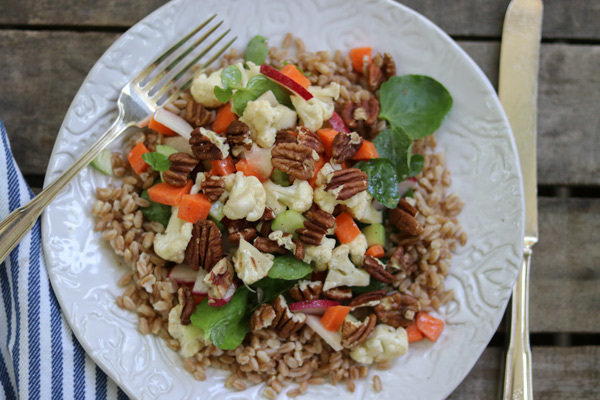Teens are watching and learning from adults all the time. While they are figuring out who they are and becoming more independent, they very much need the adults in their lives. They are watching and learning what it means to be an adult.
They get messages from family members, healthcare providers, friends, and media that eating “perfectly” and shrinking their bodies is something adults “do” or need to strive for. They don’t need to get these messages from you.

Table of contents
Focus on Health Promoting Behaviors and Your Language
Research shows that “weight talk” in the home, dieting, and restrictive feeding are linked to mental and physical health concerns. And, we know that having family meals, having a positive self image, being active, eating regular meals and snacks, and listening to one’s body are linked to positive mental and physical health outcomes. We can be an anecdote to diet culture and support our teens in growing up to have confidence and trust themselves and their bodies.
1. Zoom out!
Think about what your goals are in feeding your teenager. It’s natural to think in the short term when it comes to parenting. Did they eat their vegetables at this dinner? Did they get enough sleep last night? Did they make progress in school this grading period?
So often, we focus on the short term goals and lose track of the long term goals. Feeding oneself is a long process and your teen doesn’t need to be an expert right off the bat.
We need to zoom out – what are the goals you have for your children, when it comes to food, when they are grown up and leave the home?
We think about things like:
- Feel relaxed and flexible around food.
- Know how to feed themselves in a way that is balanced, nourishing, and satisfying overall (self-care).
- Have basic food preparation skills.
- Eat well and listen to their body .
- Have an appreciation for the wisdom and diversity of bodies.
We may be able to “get” a child to eat vegetables at dinner tonight, but are we supporting a child to grow up to be a young adult that eats vegetables? Our child may eat past fullness or not eat “enough” at a certain eating time, but having real lived experiences is how they learn for the long term.
Love this post and want to save it for later?
Just fill in your email address below, click “Save It” and get it delivered right to your inbox.
2. Slowly take down the scaffolding
Feeding is like any other skill– our children need age appropriate support to continue to learn and grow. We talk a lot about using Ellyn Satter’s Division of Responsibility in feeding to help create a structure for feeding in your home.
As children get older, you may feel like they can handle all the jobs. You may pass the jobs of deciding when it’s time to eat and what is served on to our teenage child.
However, this is not usually best. Just like any other skill, we want to support our child to have more independence with eating by slowly taking down the “scaffolding” or support. A teen may make their own lunch, but you may look over it and suggest what needs to be added.
Keep planning and providing family meals, when possible. When your teen goes out with friends, ask them how they plan to feed themselves while away.

3. Understand and teach children that bodies change.
A human fact is that bodies change. Particularly, bodies change a lot during puberty and around menopause, but bodies change for all people during their journey through life.
On average, children gain 10 pounds a year for 4 years during puberty. Weight gain in childhood is a sign of health and it’s important for kids to know this.
We need to teach our children that bodies change in puberty and throughout life. We can teach this through modeling — by not criticizing our own bodies changing as we get older.
The rest of our culture sends the message that weight gain is bad and that bodies are supposed to stay the same. Children need to know weight gain is not bad and bodies change. Period.
4. Add in foods, rather than take away.
When thinking about what your child eats, approach changes with an addition rather than a subtraction mindset.
- Do you wish your child didn’t eat as much snack food?
- Or, maybe you wish your family didn’t eat food “out” as much?
- Do you worry that your child eats too many sweets?
Instead of focusing on what you want them to eat less of, think about what you want them to eat more of. Maybe you make an afternoon snack for your teen more often with foods you’d like them to eat more of. Or, maybe you make a goal for yourself to eat at home (it can be simple meals!), a certain number of meals a week.
If we focus on what we want to do less of or tell our children they need to “cut back” on something, we begin to create a scarcity mindset and our brains actually want those things more. It’s human psychology! What do you want to “add in?”

5. Consider how you talk about food and bodies
Language is so important. The way our children hear us talking about food and bodies, is how they learn about how to talk about these topics.
If they hear you talking about food as “good” and “bad” or your latest diet, they learn that this is how adults talk about food. If they hear you talking positively about your body, they learn to talk positively about themselves.
How they talk to themselves about their own body is important to their own health and wellbeing. Think about the language you use when talking about food and bodies, and challenge yourself to say something positive in earshot of your child each day.
A safe, nurturing environment
As a parent, you are NOT in charge of your child’s weight or making sure their food intake is “perfect.” What you are in charge of is creating a safe, nurturing environment for them to learn and grow into an adult. They learn what and how to eat by having experiences over their entire childhood. They learn about how to talk and think about food and bodies by observing you. By supporting them to listen to their bodies and modeling this for them, you help them grow to trust themselves and their ever-changing bodies.






I have a tween that is refusing to try some things I’m cooking. Ordinarily, I’m somewhat aware of which foods my children prefer and have at least one or two things I know they’ll eat at each meal. This tween has started to state she doesn’t like some of the things she used to (and maybe it’s because they’re old hat or we’ve had them so often), but she is also starting to refuse new things. She’ll say, “Oh I don’t like that. I’ve had it before.” Only, she hasn’t had it prepared this way before (ie- grilled zucchini vs sauteed vs in a casserole). What she wants to happen is to go grab something from the pantry- an alternate. I’ve allowed this on occasion when I know the protein I’m serving isn’t her cup of tea. But with the continued limiting of her “likes” and “tries,” I’m weary of this. I want to allow autonomy, but I also want her to try things before declaring them off-limits. Any suggestions would be welcome.
That can be so so frustrating. Sounds like she could be finding the limits and working on her independence. We’re big proponents of the parents deciding what is for dinner and the children “making do” with what is on the table. I would do what you can to both stay out of a food battle and at the same time hold firm, loving boundaries. Maybe this blog post could be helpful? https://sunnysideupnutrition.com/feeding-teens-slowly-taking-down-the-scaffolding/